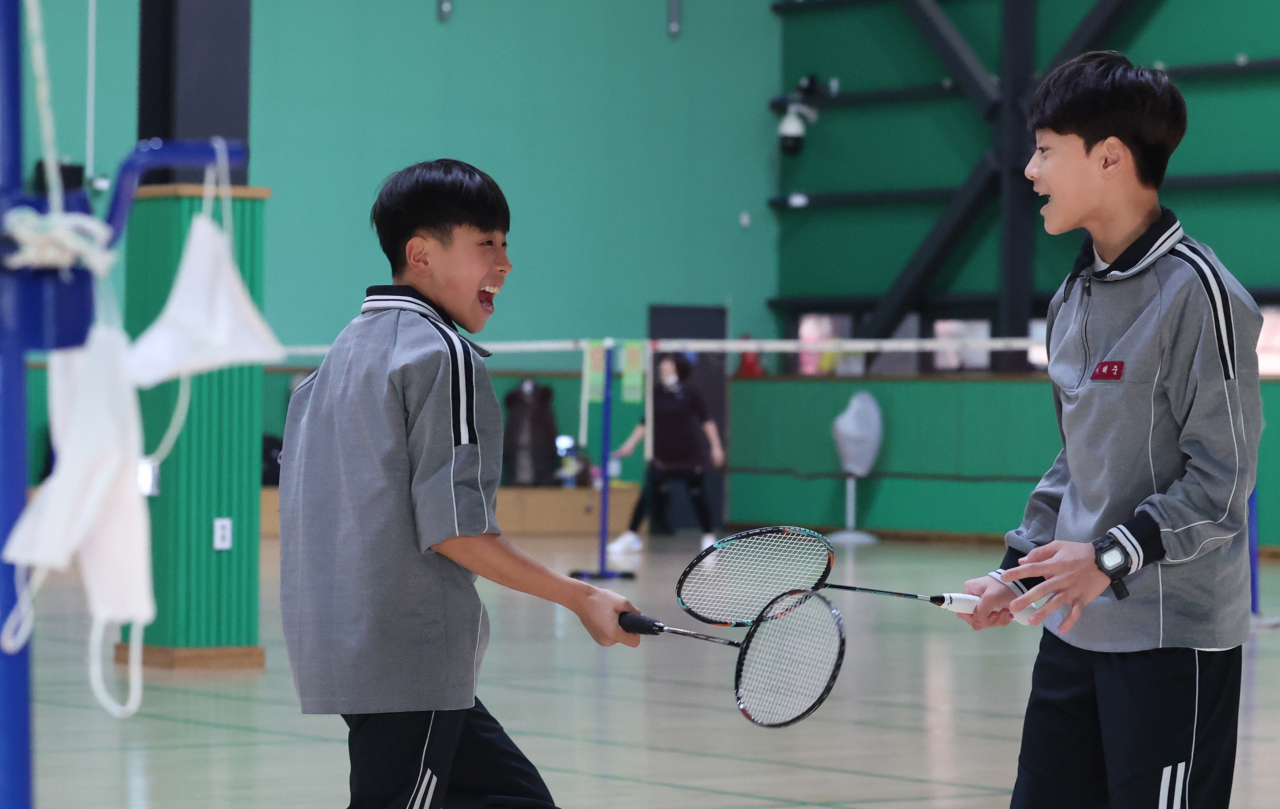 |
Students play badminton at a sports center in Seoul without masks on Monday, as the government lifted the indoor mask mandate on the day. People are still required to wear masks on public transportation and at hospitals. (Yonhap) |
South Korea's new COVID-19 cases rose to around 20,000 on Tuesday as the government is working to fully restore pre-pandemic normalcy amid an overall downtrend.
The country reported 19,629 new cases, including 31 from overseas, bringing the total caseload to 30,176,646, according to the Korea Disease Control and Prevention Agency.
Tuesday's figure was a marked gain from the previous day's 7,416 cases. It was about 60 percent larger than that of a week earlier, when fewer people appeared to have undergone COVID-19 tests during the Lunar New Year holiday.
The country added 24 COVID-19 deaths, bringing the death toll to 33,444. The number of critically ill patients came to 387, down from 402 the previous day, the KDCA said.
Amid a gradual decline in new infections recently, South Korea on Monday lifted the yearslong mask-wearing mandate for indoor places, excluding at hospitals, pharmacies and on public transportation.
The government said it is capable of managing the virus situation with the current medical response system, and the new infections, as well as the number of critically ill cases and COVID-19 deaths, have been stabilized.
Experts say the lifting of the rule will mark the onset of an endemic phase, while calling on the government to beef up efforts to better protect vulnerable groups.
Jung Ki-suck, chair of the government advisory committee for COVID-19, has said the full removal of the mask-wearing restrictions would be possible around May and it would be desirable to fully shift to a pre-pandemic medical system in around October and November.
A seven-day mandatory quarantine for those infected with the virus remains in place, and some have urged the government to shorten the period to three days. But Jung said it is premature to do so. (Yonhap)







